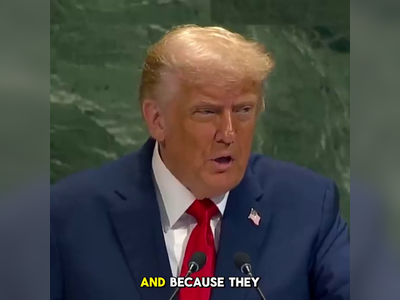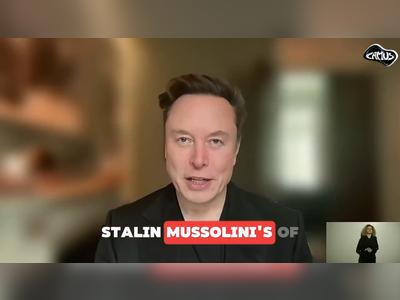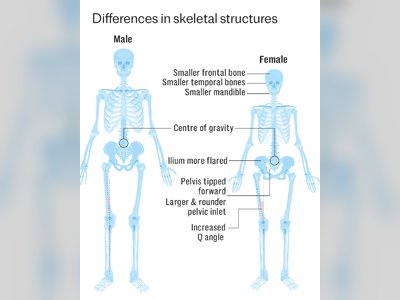Mexico Extradites 26 Cartel Figures to the United States in Coordinated Security Operation
High-ranking members from major drug cartels, including CJNG, Sinaloa, and Knights Templar, transferred to U.S. custody under bilateral agreement.
Mexico has transferred 26 senior cartel figures to the United States as part of a coordinated operation between the two governments targeting cross-border drug trafficking networks.
The group includes high-profile members of the Jalisco New Generation Cartel (CJNG), the Sinaloa Cartel, and the Knights Templar cartel.
Among those extradited is Abigael González Valencia, a leader of the 'Los Cuinis' group and brother-in-law of CJNG leader Nemesio Rubén “El Mencho” Oseguera Cervantes.
González Valencia, arrested in Puerto Vallarta in February 2015, had been contesting extradition since his capture.
U.S. authorities have offered a reward of up to fifteen million dollars for information leading to El Mencho’s arrest or conviction.
Alongside his brothers, González Valencia helped finance and expand the CJNG, which has been linked to large-scale trafficking of cocaine, methamphetamine, and fentanyl into the United States and other markets.
Also transferred is Roberto Salazar, wanted in connection with the 2008 killing of a Los Angeles County sheriff’s deputy, and Servando Gómez Martínez, known as “La Tuta,” former leader of the Knights Templar cartel.
Gómez, a former schoolteacher, led the cartel until his capture in 2015 and was sentenced to fifty-five years in prison in 2019 for his role in controlling Michoacán through violence, extortion, and quasi-religious propaganda.
The operation follows previous high-level transfers earlier this year, including figures connected to the 1985 killing of a U.S. Drug Enforcement Administration agent.
In both cases, the United States agreed not to seek the death penalty against the extradited suspects.
According to officials, the extradited individuals face charges in U.S. federal courts for crimes including narcotics trafficking, murder, and organized criminal activity.
Some of the transferred suspects had been held in Mexican prisons for years, while others were apprehended in joint operations with international law enforcement agencies, including arrests made in third countries.
The transfer comes amid ongoing bilateral cooperation on security and counternarcotics.
In recent months, the two governments have engaged in negotiations addressing both law enforcement collaboration and trade issues, including previously announced tariff measures.
Mexican President Claudia Sheinbaum has signaled an increased willingness to pursue cartel leaders aggressively while maintaining that national sovereignty will be upheld in security operations.
The group includes high-profile members of the Jalisco New Generation Cartel (CJNG), the Sinaloa Cartel, and the Knights Templar cartel.
Among those extradited is Abigael González Valencia, a leader of the 'Los Cuinis' group and brother-in-law of CJNG leader Nemesio Rubén “El Mencho” Oseguera Cervantes.
González Valencia, arrested in Puerto Vallarta in February 2015, had been contesting extradition since his capture.
U.S. authorities have offered a reward of up to fifteen million dollars for information leading to El Mencho’s arrest or conviction.
Alongside his brothers, González Valencia helped finance and expand the CJNG, which has been linked to large-scale trafficking of cocaine, methamphetamine, and fentanyl into the United States and other markets.
Also transferred is Roberto Salazar, wanted in connection with the 2008 killing of a Los Angeles County sheriff’s deputy, and Servando Gómez Martínez, known as “La Tuta,” former leader of the Knights Templar cartel.
Gómez, a former schoolteacher, led the cartel until his capture in 2015 and was sentenced to fifty-five years in prison in 2019 for his role in controlling Michoacán through violence, extortion, and quasi-religious propaganda.
The operation follows previous high-level transfers earlier this year, including figures connected to the 1985 killing of a U.S. Drug Enforcement Administration agent.
In both cases, the United States agreed not to seek the death penalty against the extradited suspects.
According to officials, the extradited individuals face charges in U.S. federal courts for crimes including narcotics trafficking, murder, and organized criminal activity.
Some of the transferred suspects had been held in Mexican prisons for years, while others were apprehended in joint operations with international law enforcement agencies, including arrests made in third countries.
The transfer comes amid ongoing bilateral cooperation on security and counternarcotics.
In recent months, the two governments have engaged in negotiations addressing both law enforcement collaboration and trade issues, including previously announced tariff measures.
Mexican President Claudia Sheinbaum has signaled an increased willingness to pursue cartel leaders aggressively while maintaining that national sovereignty will be upheld in security operations.










